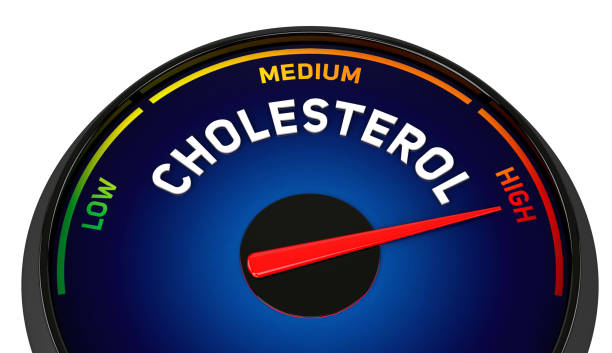Certain lifestyle changes that lower cholesterol can also lower your blood pressure. Such as: eating a healthy diet and exercising can help lower both cholesterol and blood pressure.
High Cholesterol, Low Blood Pressure and Heart Disease Risk

"They're really separate risk factors," says Lynne Braun, PhD, CNP, professor emerita at Rush University in Chicago. "You've got to look at both risk factors individually. If somebody has a very high cholesterol level, even though their blood pressure is normal, that very high cholesterol level needs to be addressed."
What Causes High Cholesterol
Your body produces all the low-density lipoprotein (LDL) cholesterol — known as the "bad" cholesterol — it needs, states the American Heart Association (AHA). But certain lifestyle habits can raise your levels of LDL. According to the National Library of Medicine (NLM), these include:
- Eating foods high in saturated fats
- Being overweight
- Not being physically active, which can result in weight gain
- Smoking cigarettes
There are also factors beyond your control that can raise your LDL. One example is your age. LDL levels tend to rise as you get older. Race can also play a role as blacks typically have higher levels than whites of both LDL and HDL (high-density lipoprotein, the "good" cholesterol), according to the NLM.
Your family history is another factor. "There are people who have a condition called familial hypercholesterolemia that they have inherited from one or both of their parents," says Braun. People with familial hypercholesterolemia (FH) have extraordinarily high cholesterol levels. "Optimal LDL cholesterol is less than 100," she says. "These would be individuals who have an LDL cholesterol of 190 or greater."
For people with FH, says Braun, high cholesterol levels aren't a result of diet or other lifestyle habits and, typically, medication is the only thing that can effectively lower both their cholesterol and their risk. "If cholesterol is not lowered and removed from these individuals, they can have heart attacks as children and teenagers and young adults," she says.
Foods that Lower Cholesterol
If you're not one of the 1 in 300 people Braun estimates has an inherited form of high cholesterol, you may be able to lower your LDL cholesterol by adopting a healthier diet. The NLM recommends following these general guidelines:
- Avoid saturated fats and trans fats. Instead, opt for healthier fats such as those found in unsaturated oils like olive, canola and safflower.
- Limit foods containing cholesterol. These are typically animal-based foods such as organ meats, egg yolks and whole-milk dairy products.
- Eat foods high in soluble fiber. Enjoy whole-grain cereals, fruits and beans. The fiber helps keep your body from absorbing cholesterol.
- Eat more fruits and vegetables in general. These have compounds called plant stanols or sterols that can also prevent your body from absorbing cholesterol.
In particular, the Mayo Clinic recommends the following foods that improve cholesterol levels — that is, lowering your LDL cholesterol, raising your HDL, and lowering your triglycerides (another type of fat in your blood):
- Oatmeal or oat bran
- Fatty fish such as mackerel, herring, tuna, salmon and trout
- Almonds and other tree nuts
- Avocados
- Olive oil
- Whey protein
If Lifestyle Changes Don’t Help
The AHA says changing lifestyle habits is a good first step. But if ea
ting a healthier diet, losing weight, being more physically active, and quitting smoking don't improve your cholesterol levels, your doctor may prescribe medications that can.
As for your healthy blood pressure numbers, you doctor likely will continue to monitor them because, according to the National Institute on Aging, the chance of developing high blood pressure increase with age.
causes of high blood pressurecholesterol affects blood pressurefoods for high blood pressureFoods That Encourage Low Blood PressureFoods that Lower CholesterolHealthy Fats and Weight Controlhigh cholesterol and blood pressureLifestyle Modifications to Reduce Blood PressureLifestyle Tips to Control Blood Pressure






